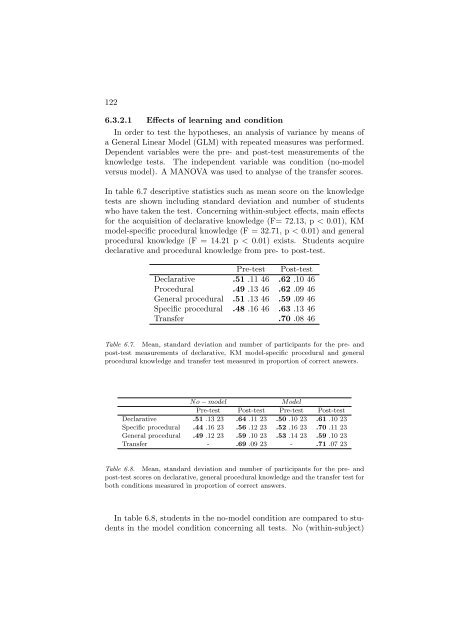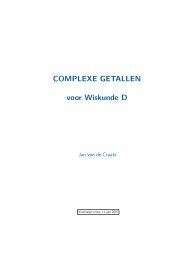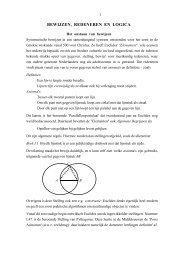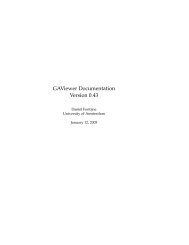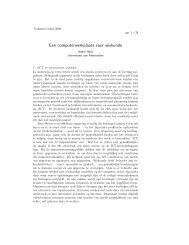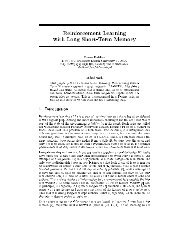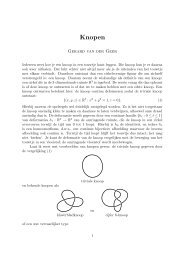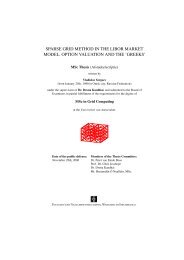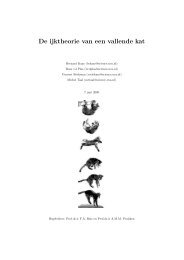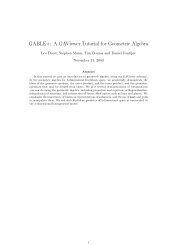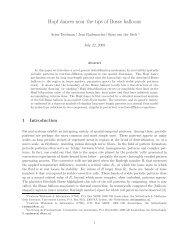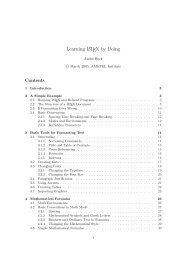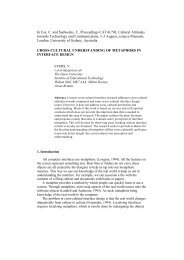The role of metacognitive skills in learning to solve problems
The role of metacognitive skills in learning to solve problems
The role of metacognitive skills in learning to solve problems
You also want an ePaper? Increase the reach of your titles
YUMPU automatically turns print PDFs into web optimized ePapers that Google loves.
122<br />
6.3.2.1 Effects <strong>of</strong> learn<strong>in</strong>g and condition<br />
In order <strong>to</strong> test the hypotheses, an analysis <strong>of</strong> variance by means <strong>of</strong><br />
a General L<strong>in</strong>ear Model (GLM) with repeated measures was performed.<br />
Dependent variables were the pre- and post-test measurements <strong>of</strong> the<br />
knowledge tests. <strong>The</strong> <strong>in</strong>dependent variable was condition (no-model<br />
versus model). A MANOVA was used <strong>to</strong> analyse <strong>of</strong> the transfer scores.<br />
In table 6.7 descriptive statistics such as mean score on the knowledge<br />
tests are shown <strong>in</strong>clud<strong>in</strong>g standard deviation and number <strong>of</strong> students<br />
who have taken the test. Concern<strong>in</strong>g with<strong>in</strong>-subject effects, ma<strong>in</strong> effects<br />
for the acquisition <strong>of</strong> declarative knowledge (F= 72.13, p < 0.01), KM<br />
model-specific procedural knowledge (F = 32.71, p < 0.01) and general<br />
procedural knowledge (F = 14.21 p < 0.01) exists. Students acquire<br />
declarative and procedural knowledge from pre- <strong>to</strong> post-test.<br />
Pre-test Post-test<br />
Declarative .51 .11 46 .62 .10 46<br />
Procedural .49 .13 46 .62 .09 46<br />
General procedural .51 .13 46 .59 .09 46<br />
Specific procedural .48 .16 46 .63 .13 46<br />
Transfer .70 .08 46<br />
Table 6.7. Mean, standard deviation and number <strong>of</strong> participants for the pre- and<br />
post-test measurements <strong>of</strong> declarative, KM model-specific procedural and general<br />
procedural knowledge and transfer test measured <strong>in</strong> proportion <strong>of</strong> correct answers.<br />
No − model<br />
Model<br />
Pre-test Post-test Pre-test Post-test<br />
Declarative .51 .13 23 .64 .11 23 .50 .10 23 .61 .10 23<br />
Specific procedural .44 .16 23 .56 .12 23 .52 .16 23 .70 .11 23<br />
General procedural .49 .12 23 .59 .10 23 .53 .14 23 .59 .10 23<br />
Transfer - .69 .09 23 - .71 .07 23<br />
Table 6.8. Mean, standard deviation and number <strong>of</strong> participants for the pre- and<br />
post-test scores on declarative, general procedural knowledge and the transfer test for<br />
both conditions measured <strong>in</strong> proportion <strong>of</strong> correct answers.<br />
In table 6.8, students <strong>in</strong> the no-model condition are compared <strong>to</strong> students<br />
<strong>in</strong> the model condition concern<strong>in</strong>g all tests. No (with<strong>in</strong>-subject)


